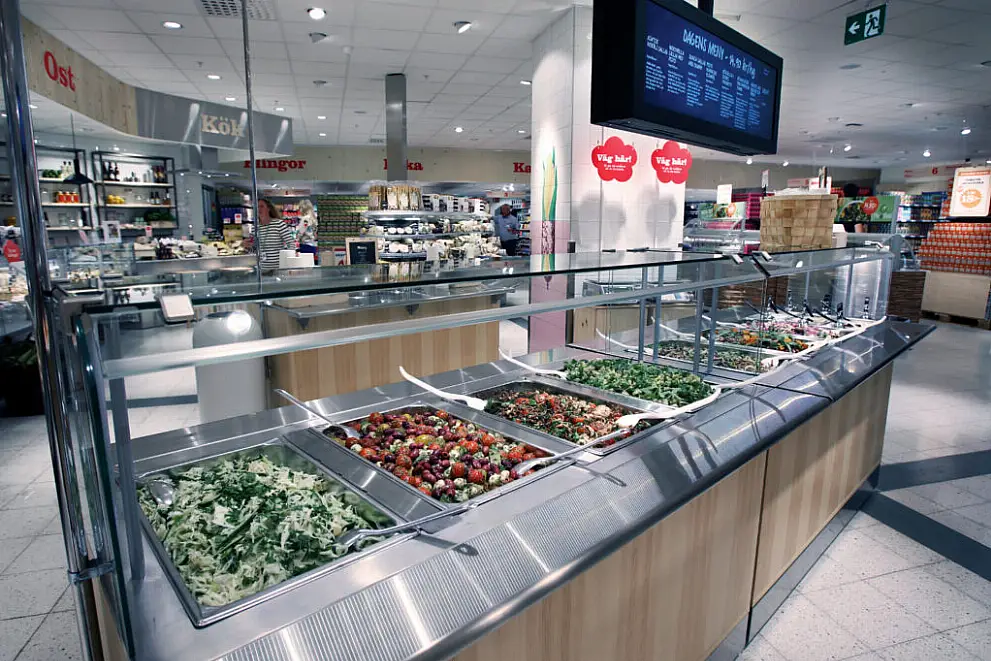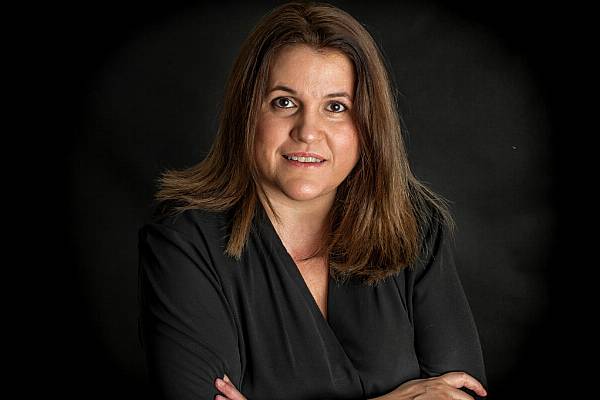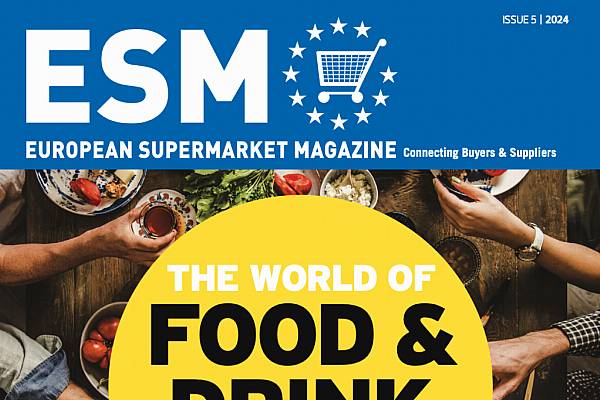In the run up to Christmas 2018, ESM is proud to present a recap of some of our biggest articles of the year, exclusively for Premium website subscribers. At the start of the year, we met Klas Balkow just as he completed his first year at the helm at Swedish operator Axfood. This article first appeared in ESM Issue 2 2018.
Sweden has long been considered one of Europe’s most progressive, stable economies, with low debt levels, manageable inflation and strong social prosperity.
In business, and in particularly retail, this strong and stable culture has made the sector one of the most competitive and enterprising in the world; after all, there’s a reason why IKEA is a byword for Swedish dynamism.
ESM recently had the pleasure of attending a Capital Markets Day event in Stockholm, hosted by Axfood, the country’s second biggest food retailer, where conversation ranged from the best way to engage the smartphone-based shopper, to the challenges involved in meal-kit deliveries, to ways in which the group’s budget private label offerings can be more environmentally-friendly.
It marked a refreshing change from the profit- and loss-based discussions that generally take place at these sort of events. But then again, Axfood isn’t your typical retailer.
Exciting Times
“It’s a very exciting time to be in retail at the moment,” Axfood’s chief executive Klas Balkow tells ESM. “The market is changing in so many ways, and we are aiming to keep ahead of those changes.”
Balkow is a relatively new arrival at Axfood, having joined the firm as CEO this time last year. He’s well versed in retail and FMCG, having left hardware chain Clas Ohlson to take up the role at Axfood, while he also previously held positions with Procter & Gamble, on both sides of the Atlantic.
“With Procter & Gamble, I worked in both the Nordic countries and in Texas, working a lot with [San Antonio-based retailer] H-E-B,” he says. “I’ve always had a lot of experience in dealing with the customer; that’s been my profession. At Clas Ohlson, we focused a lot on international expansion. The day before we opened in the UK, in 2008, Woolworths collapsed – we weren’t sure if it was a bad omen!”
Strong Performance
At Axfood, Balkow appears to have a lot less to be concerned about. According to the group’s most recent full year results, published in February, it posted a 7.0% increase in net sales year on year, to just under SEK 46 billion (€4.56 billion – up from just under SEK 43 billion the previous year).
All of its divisions were in growth: Willys, its wholly-owned soft discount chain, posted a 9.7% increase in sales, while Hemköp, its supermarket operation (of which 67 stores are group-owned, and the rest operated by franchisees) rose 0.3%. Its wholesale businesses, Axfood Närlivs and Dagab, were up 3.5% and 5.2%, respectively.
This performance measures up well against the wider Swedish retail market; overall, food retail sales in Sweden are estimated to have grown by 2.3% last year, according to preliminary data from Statistics Sweden and HUI Research.
Net profit at the group, however, was down 0.4% to SEK 1.467 billion, following the company’s busiest year yet for acquisitions – it acquired Saba’s fruit and vegetable warehouse operation, online retailer MAT.se, and meal kit provider Middagsfrid, as well as partnering in the formation of online pharmacy company Apohem.
Balkow believes that the level of acquisitions reflects the company’s need to “be where the customer is”, which, increasingly, is online.
“We want to extend our brand,” he says. “Whatever sales channel our customers are choosing, we want to be there for them. A certain number of our customers will want to shop online. We have to see how we can develop synergies and efficiencies out of that.”

Changing Formats
This investment in digitisation is a timely one. According to the Swedish Trade Federation, the retail landscape is likely to see more changes in the next ten years than at any time over the past fifty, with e-commerce likely to play an increasingly important part in determining which retailers will be successful, and which will be left behind.
“With the acquisition of pure play online retailers such as Mat.se, yes, we are getting volume, but we are also getting a number of ‘dark’ stores, we are getting technology, and we are getting competence,” says Balkow. “From this, we can learn how to be more agile, more innovative.”
He points to a recent tie-up between Mat.se and Volvo, which saw packages delivered straight into the trunk of a customer’s car.
“Could we do something similar, such as deliver straight into our customers’ refrigerators? The one thing that is certain is that nobody is really sure where the online shopping industry will end up. But we now have the flexibility to try new things.”
At the same time, however, the ‘elephant in the room’ when it comes to online retailing is the question of margins, and how to maintain them. Online shoppers at Willys can avail of home deliveries for SEK 99 (around €9.80); good value relative to the wider retail market, yet still a stumbling block for many shoppers.
“I’ve still not found anyone that has cracked the code for that; it’s the same challenge for everyone,” Balkow says. “We have presented a vision built around synergies – at our picking facilities, in our transport and logistics networks – which will lead to delivery costs going down.”
Embracing The Megatrends
Online isn’t the only ‘megatrend’ on the agenda, however. In its recent Annual Report, Axfood identified five key trends that it believes are likely to shape Swedish retail going forward, and how it is responding to them.
These include catering for the growing number of different nationalities in its shopper base (today, Syrians are Sweden’s largest immigrant group); sector convergence and changing consumer patterns (the share of household spend on food has decreased by half over the past 25 years); healthy living; ‘value for money’ being more than just price-based; sustainability and corporate responsibility.
As Balkow explains, Axfood has utilised customer shopping data to better understand how and why its customers are shopping, and also how the retailer can deliver better solutions for them.
“Our physical stores will continue to be our largest sales channel for some time, so for us, it’s about making our whole operation better,” he says. “That’s time consuming, and it’s difficult work, but we have discovered lots of ways to use big data to drive those insights that we can improve upon.”
Healthy Private Label
On health and wellness, Axfood has taken a particularly active standpoint – at Hemköp, for example, the retailer’s ‘Vary with Veg’ concept has seen sales of refrigerated and frozen plant-based protein substitutes increase by 29% last year.
Meanwhile, at Willys, a brand that has long pledged to offer ‘Sweden’s cheapest bag of groceries’, the group’s organic focus extends right down to its budget private label range. The banner recently launched campaigns including ‘Eko för Alla’ (Eco for Everybody) and Vego för Alla (Vegan for Everybody), illustrating how it has been able to combine low prices with defined consumer values.
“One of the things that is consistent across our range is that yes, we have the price fighter brand, the value driver, but we also want to raise the bar in terms of standards, sourcing and product development, because we know how important that is for our customers,” says Balkow.
“It’s very easy to offer the ‘lowest price’, and yes, we have good value, but we also have certain standards when it comes to organic, or eco-friendly.”

Hero Concepts
Axfood’s private label strategy is built around a number of ‘hero’ concepts, including mainstream brands such as Garant, which boasts more than 1,500 SKUs of mainly mid-range and value-added food products, as well as more niche offerings such as the Såklart laundry and cleaning offerings, which use packaging made of recycled plastic or bioplastics.
“We have a higher share of private label than the competition, and the better we are at developing our private labels, the more our customers are demanding them from us,” says Balkow. “Garant is a great example of this; the brand has a lot of values, and the customer asks for it by name when shopping with us. When you can get to that stage, you really add a new dimension.”
New Formats
Axfood is also seeking to maximise the potential of its various store formats in order to bolster growth, with the past year seeing the introduction of several new concepts.
For example, together with Urban Deli (a market-style deli-cum-restaurant chain in which Axfood has a 50% share), Hemköp is further developing its array of meal solutions and in-store fresh food counters.
The most impressive of these new-concept stores is the Hemköp City store in Stockholm’s city centre, reopened last August, which boasts a florist, a patisserie, a large seafood department and heated fresh food buffets. The integration of meal kit solutions firm Middagsfrid offers yet more potential for expansion for this format.
“We have tried to introduce a ‘flagship’ mentality into the Hemköp City store,” says Balkow, “and we are now looking to roll some of these services out to other stores.”
Franchise Factor
Ensuring franchisees are also on board is a key element of Axfood’s strategy; at year-end 2017, approximately 60% of its Hemköp stores had been modernised, as well as 25% of franchise stores. The group also operates the ‘91/9’ model, a financing solution that makes it possible for employees to buy a store from Axfood after a period of two years.
“The current ‘wave’ of store refurbishments is something that is also open to our franchisees,” says Balkow. “But at the same time, we are also learning from them, as well. Our franchisees are smart business people. The mix of company-owned stores and franchise stores is very important from that perspective.”
Notably, the group’s franchised Hemköp outlets posted an 8.9% increase in store sales last year, compared to 7.0% for the entire group.
Looking Ahead
Few retail chief executives can look back on a first year in the job as busy as Balkow’s. Yet, as he explains, work is only beginning in terms of building Axfood into an operator capable of taking on the challenges of tomorrow.
“Just because we have completed a series of acquisitions, doesn’t mean we are finished on that front,” he says.
“Our number one priority is to grow, and to gain market share, and I think we are on the right path for that. But in order to get there, we need to invest in our customer offer, build our omni-channel offer, and drive greater efficiencies in our supply chain. So, it’s a full plate.”
© 2018 European Supermarket Magazine – your source for the latest retail news. Article by Stephen Wynne-Jones. Click subscribe to sign up to ESM: The European Supermarket Magazine.














